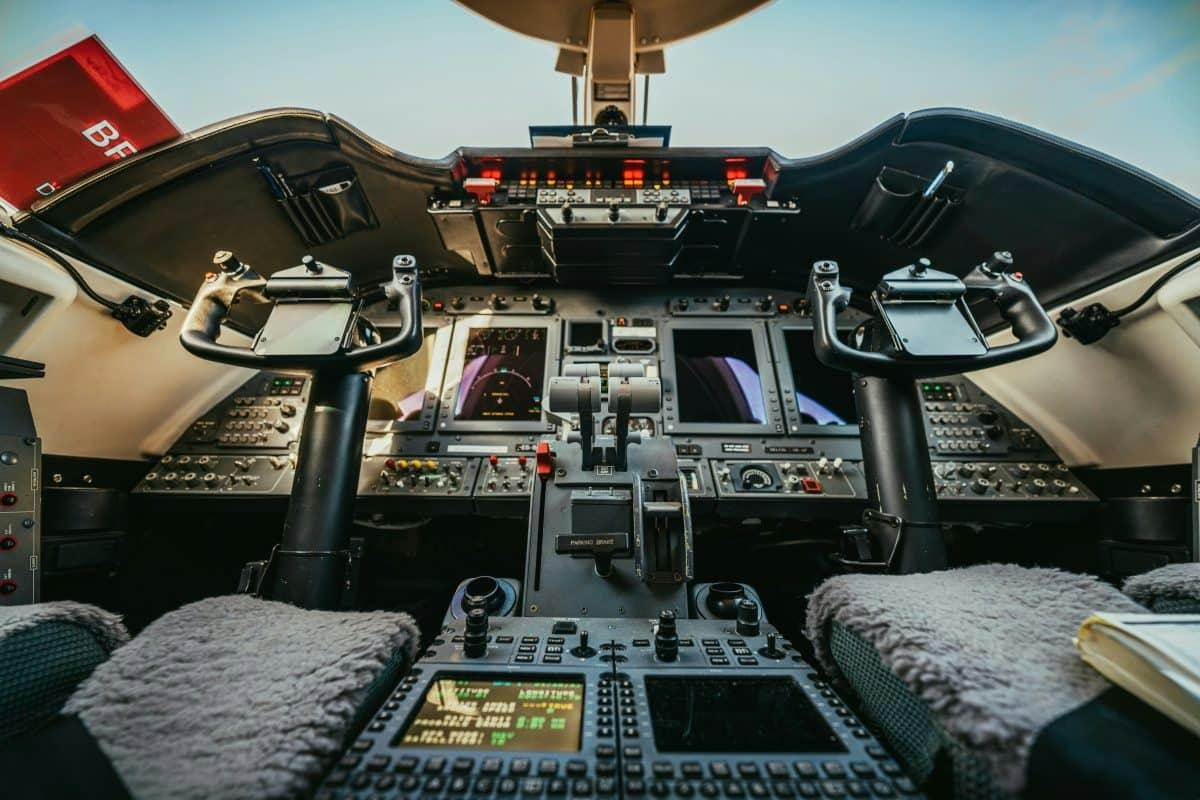AeroGenie — 您的智能副驾驶。
热门趋势
Categories
Commercial Electronic Flight Bag Market Projected to Reach $12.4 Billion by 2034

Commercial Electronic Flight Bag Market Projected to Reach $12.4 Billion by 2034
The global Commercial Electronic Flight Bag (EFB) market is set for substantial growth, with forecasts indicating its value will reach approximately $12.39 billion by 2034. This expansion is largely driven by the aviation sector’s ongoing digital transformation, as airlines and pilots increasingly adopt advanced, paperless cockpit solutions designed to improve operational efficiency and flight safety.
Market Growth and Key Drivers
In 2024, the EFB market is valued at $7.06 billion and is expected to increase to $7.47 billion by 2025, maintaining a compound annual growth rate (CAGR) of 5.8% through 2032. The transition toward digital cockpits is a primary catalyst for this growth. EFBs, typically deployed as tablets or integrated avionics systems, are replacing traditional paper-based manuals and charts. These digital tools streamline pre-flight, in-flight, and post-flight operations, enabling airlines to reduce fuel consumption, minimize paper usage, and enhance cockpit resource management. Beyond operational cost savings, the adoption of paperless workflows supports sustainability efforts by decreasing aircraft weight and reducing environmental impact.
Technological Advancements and Industry Adaptation
Technological innovation is a significant driver behind the increasing adoption of EFBs. Modern devices offer real-time data synchronization, integrated GPS, live weather updates, performance analytics, and seamless connectivity with ground operations. The incorporation of Artificial Intelligence (AI) and Machine Learning (ML) technologies facilitates predictive analytics and automation, further optimizing flight management processes. Additional functionalities such as electronic logbooks, fuel monitoring, and pilot training tools have become essential features for commercial airlines.
The aviation industry’s embrace of Internet of Things (IoT) technologies has further enhanced EFB capabilities by enabling connectivity with broader aircraft systems. This integration allows for real-time data collection and monitoring, improving decision-making and safety for flight crews.
Regulatory Environment and Market Challenges
Regulatory bodies, including the Federal Aviation Administration (FAA) and the European Union Aviation Safety Agency (EASA), have been instrumental in promoting EFB adoption by establishing clear certification guidelines and operational frameworks. These regulatory efforts have facilitated the global shift toward digital flight deck solutions while ensuring compliance with stringent safety standards.
Despite these advances, the market faces several challenges. Maintaining regulatory compliance remains complex as standards continue to evolve. Technical difficulties in integrating EFBs with existing aviation systems persist, and rapid technological advancements by competitors necessitate ongoing innovation. To address these challenges, industry participants are increasing investments in research and development, forming strategic partnerships, and enhancing product capabilities to remain competitive.
Competitive Landscape and Market Outlook
Competition within the EFB market is intensifying, with companies employing aggressive pricing strategies, expanding feature sets, and pursuing strategic acquisitions to secure or grow their market share. The emphasis on flight data analytics and operational efficiency is driving both regulatory agencies and airlines to adopt advanced EFB systems that align with evolving industry requirements.
As global air traffic recovers and airline fleets expand, demand for sophisticated, integrated EFB solutions is expected to rise. The sustained growth of the market reflects the aviation industry’s commitment to digital transformation, operational excellence, and enhanced cockpit safety.

Factors Positioning Airbus for Leadership in 2026

Emirates Unveils Cabin Design for New Boeing 777X

Eighteen Years On, the Airbus A380 Remains Central to a $34 Billion Airline

How a boom in luxury airline seats is slowing down jet deliveries

Navitaire Outage Attributed to Planned Maintenance

Airbus Plans Record Delivery of 870 Aircraft in 2026

DigiYatra Debuts Outside Aviation at India AI Impact Summit

Vietnam Orders Strengthen Boeing’s Commercial Outlook

Airbus Signals Uncertainty Over Future A400M Orders

JobsOhio Awards $2 Million Grant to Hartzell Propeller for Innovation Center
